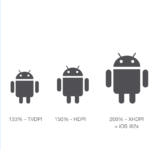Have you recently built or bought a brand-new gaming rig only to run into a frustrating issue games suddenly crashing on new PC? You’re definitely not alone. It’s both baffling and annoying when a shiny new setup starts throwing you out of your favorite AAA titles. Whether it’s mid-match in Call of Duty, crashing on startup in Elden Ring, or randomly freezing in Cyberpunk 2077, the issue can ruin what should be an exciting upgrade.
But don’t worry—there is a fix. In this comprehensive 2025 guide, we’ll break down why games might be crashing unexpectedly on your new system, how to diagnose the problem, and, most importantly, how to fix it. We’ll cover both hardware and software possibilities, as well as tips from real gamers and experts.
And if you’re into PC gaming, don’t forget to check out TechJolok’s Hardware & Gaming section where we share the latest builds, troubleshooting guides, and performance optimization tips.
Why Do Games Crash on a New PC?
It might feel counterintuitive—after all, a new PC should mean better performance, not problems. But the truth is, gaming crashes can be caused by a wide range of factors:
Incompatible drivers
Overheating
Unstable overclocks
Faulty or mismatched RAM
Software conflicts
Background apps using too many resources
Modern games push systems hard, and if even one piece of the puzzle is slightly off, it can result in a crash.
Let’s walk through what these signs look like and how to troubleshoot the issue like a pro.
Common Signs Before a Crash
Before a crash, your PC might give you hints. Keep an eye out for:
Sudden FPS drops before freezing
Audio glitching or stuttering
GPU fan ramping up aggressively
Monitor going black for a second before returning
Windows Event Viewer logs with error messages like “Application Hang” or “Kernel Power”
These are clues that help isolate the problem.
Top 10 Reasons Games Suddenly Crash on New PCs
1. Outdated or Corrupt Graphics Drivers
One of the most common culprits. Even a brand-new PC can have outdated GPU drivers.
2. Windows Not Fully Updated
Initial Windows installations often need a round of updates before becoming stable.
3. Faulty RAM or Bad RAM Configuration
Incorrect RAM timings or mismatched sticks can cause instability in gaming.
4. Thermal Throttling or Overheating
High CPU or GPU temps can force the system to shut down the app to prevent damage.
5. PSU Issues or Power Spikes
Underrated or poor-quality power supplies can cause crashes when GPUs draw peak power.
6. Incompatible Background Apps
RGB controllers, Razer Synapse, MSI Afterburner, etc., can conflict with games.
7. DirectX or Visual C++ Redistributables Missing
Games often rely on these, and they’re not always pre-installed.
8. Overclocking Instability (CPU/GPU/RAM)
Even factory overclocks can sometimes cause unexpected issues.
9. Corrupt Game Files
Sometimes the problem lies in the game itself, especially after an update or bad install.
10. Malware or Background Antivirus Interference
Some antivirus programs wrongly flag games or block access to certain game files.
Step-by-Step Fixes for Games Crashing on a New PC
✅ Step 1: Update Graphics Drivers
NVIDIA: Use GeForce Experience
AMD: Use AMD Software: Adrenalin Edition
Always do a clean install.
✅ Step 2: Update Windows Fully
Go to Settings > Windows Update
Check for optional updates too
✅ Step 3: Check RAM Health
Use MemTest86 for advanced testing
Make sure XMP/DOCP is enabled in BIOS (for proper RAM speed)
✅ Step 4: Monitor Temperatures
Use HWMonitor, MSI Afterburner, or HWiNFO64
Aim for:
GPU under 85°C
CPU under 90°C under load
✅ Step 5: Run Games as Administrator
Right-click on the game shortcut > Properties > Compatibility tab > Check “Run as Administrator”
✅ Step 6: Reinstall DirectX and VC++
Most games include installers located in:
C:\Program Files (x86)\Steam\steamapps\common\[GameName]\_CommonRedist
✅ Step 7: Verify Game Files
On Steam: Right-click > Properties > Installed Files > Verify integrity
On Epic: Click the three dots next to the game > Manage > Verify
✅ Step 8: Check for PSU Problems
Use tools like OCCT Power Test
Look for voltage drops or crashes under load
Advanced Tips for Gamers & Power Users
🔧 Use Reliability Monitor
Search “Reliability Monitor” in Windows and see patterns or frequent crashes.
🔧 Tweak Virtual Memory
Set virtual memory manually:
Initial Size: 1.5x your RAM
Max Size: 3x your RAM
🔧 Disable Game Mode (Yes, Really)
Some gamers report that disabling Windows “Game Mode” actually improves stability in niche cases.
🔧 Disable Fullscreen Optimizations
Right-click on game EXE > Properties > Compatibility > Disable fullscreen optimizations
When to Seek Professional Help
If you’ve gone through all the steps and games are still suddenly crashing on your new PC, it might be time to:
Contact your system builder (if prebuilt)
Request an RMA for suspected faulty components (RAM, GPU, PSU)
Hire a local technician to stress test the build
Trusted Tools to Keep Handy
Here are some free utilities we recommend at TechJolok:
| Tool | Use |
|---|---|
| MSI Afterburner | Monitor temps, fan speeds, FPS |
| HWiNFO64 | Deep hardware stats |
| MemTest86 | RAM diagnostics |
| OCCT | PSU/GPU/CPU stress testing |
| CrystalDiskInfo | Monitor SSD/HDD health |
Final Thoughts
If you’re dealing with games suddenly crashing on new PC, you’re not alone. It’s a frustrating experience, but the good news is that the problem is often solvable with the right diagnostics and a methodical approach.
Start with the basics: update your drivers, verify your game files, and check temps. Move to advanced tools if needed, and don’t hesitate to seek help if hardware failure is suspected.
And for more practical gaming tips, troubleshooting guides, and build recommendations, head over to TechJolok’s Gaming Corner. We keep our content updated for 2025 and beyond—so you can game crash-free and at peak performance.

















Leave a Review